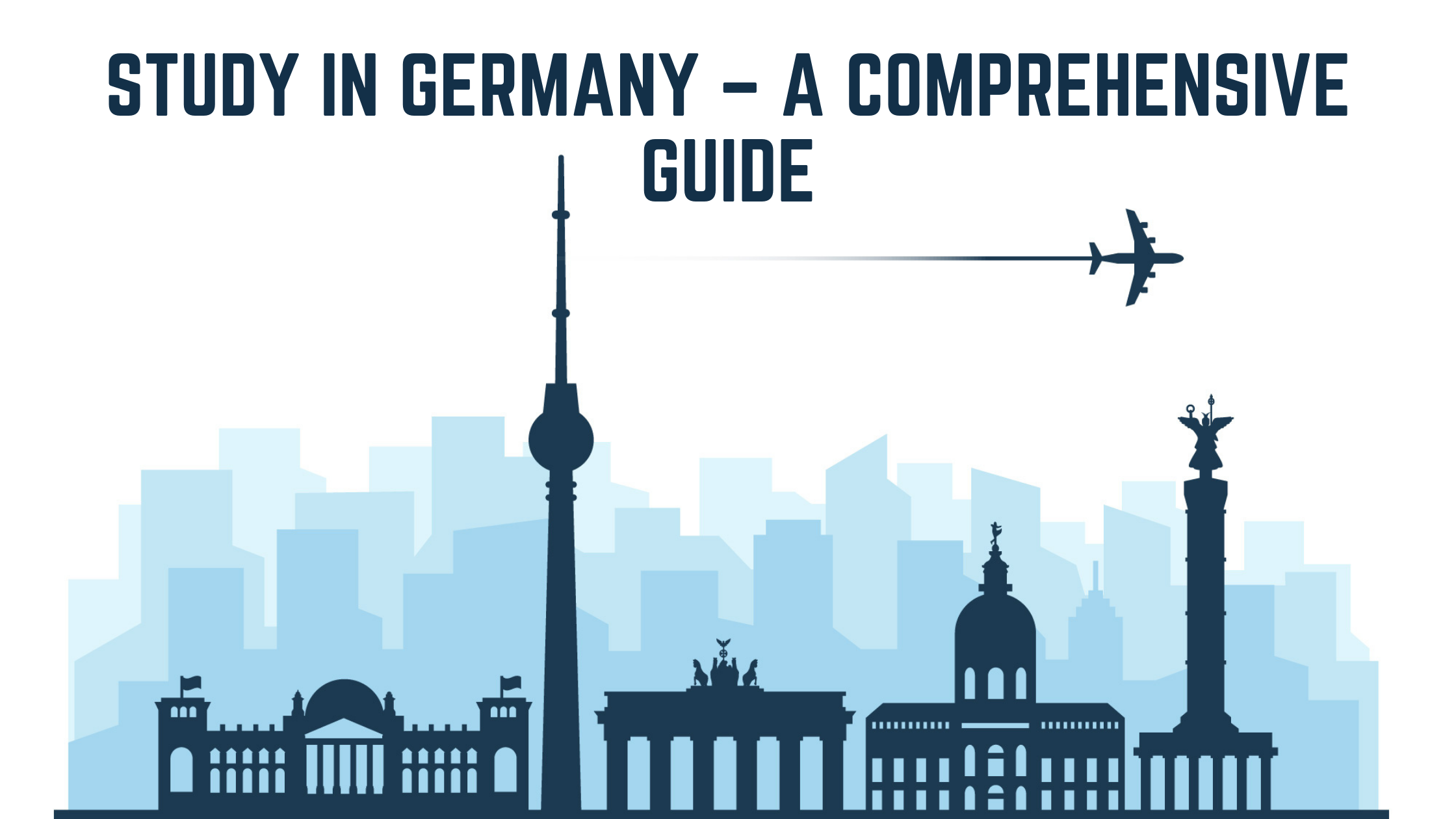


Study Abroad in Germany
Studying abroad can be an enriching and life-changing experience, providing students with the opportunity to explore new cultures, gain valuable knowledge, and build global connections. With its world-class education system and renowned universities, study abroad in Germany has become a popular destination for international students. In this comprehensive admission guide, we will provide an overview of studying in Germany, admission requirements for international students, tips for choosing the right university and program, the application process, and essential documents needed. So, if you’re considering study abroad in Germany, read on for a step-by-step guide to help you navigate the admissions process successfully.
Overview of Studying in Germany
Germany is known for its high-quality education system, which is highly regarded worldwide. The country offers a wide range of programs and courses, covering diverse fields of study. From engineering and sciences to humanities and business, German universities have something to offer for every academic interest.
Moreover, study abroad in Germany can be quite affordable compared to other popular abroad destinations. Many universities in Germany do not charge tuition fees, even for international students. However, students are required to cover their living expenses and contribute to other administrative costs.
Additionally, Germany provides a multicultural and inclusive environment for students, offering countless opportunities to network, participate in extracurricular activities, and gain practical experience through internships. The country is also centrally located in Europe, making it easy to travel and explore other European countries during your study abroad in germany experience.

Admission Requirements for International Students
Before applying to a German university, it’s crucial to understand the admission requirements for international students. While the requirements may vary depending on the program and university you choose, here are some general prerequisites:
- Academic Credentials: You will need to provide proof of your previous academic achievements. This usually includes your high school diploma or equivalent for undergraduate programs and your bachelor’s degree or equivalent for postgraduate programs. Make sure your credentials are properly translated into German or English.
- Language Proficiency: Most universities in Germany teach their courses in German. Therefore, international students are required to provide proof of their German language proficiency. This is typically demonstrated through standardized language tests such as TestDaF or DSH. However, some universities offer English-taught programs, and in that case, you will need to submit proof of your English language proficiency (e.g., TOEFL or IELTS scores).
- Entrance Examinations: Certain programs, like medicine or engineering, may require additional entrance examinations or aptitude tests. Check with your chosen university for specific requirements.
- Health Insurance: German universities require all international students to have health insurance coverage. You can either purchase insurance in your home country or opt for a German health insurance plan.
It is essential to research and understand the specific admission requirements of the university and program you are interested in. Each university may have its own set of criteria and deadlines, so be sure to check their official websites for accurate and up-to-date information.
Study Abroad in Germany: Choosing the Right University & Program
Germany, a hub of educational excellence, presents a plethora of universities with diverse programs. Selecting the ideal institution that resonates with your academic aspirations during your study abroad in Germany journey is pivotal. Here’s a guide to help-
- Academic Reputation: Research the academic reputation of the universities and programs you are considering. Look for rankings, accreditations, and faculty expertise in your desired field of study.
- Program Offerings: Evaluate the curriculum and program structure to ensure they align with your academic interests and career goals. Consider whether the program offers various specialization options, internships, or study abroad opportunities.
- Location: Consider the location of the university and the surrounding environment. Do you prefer a vibrant city atmosphere or a more peaceful countryside setting? Also, think about practical aspects such as cost of living, transportation, and proximity to amenities.
- University Size and Facilities: Consider whether you prefer a large, research-focused university or a smaller, more intimate learning environment. Additionally, assess the available resources, libraries, research centers, and facilities that will support your academic journey.
- Student Support Services: Look into the university’s support services for international students, such as orientation programs, language support, counseling, and career services. These resources can greatly enhance your study abroad experience.
It is recommended to narrow down your choices to a few universities that meet your criteria and then thoroughly research each one. Reach out to current students or alumni, attend university fairs or information sessions, and explore the university’s official website for more information.

Application Process and Required Documents
Once you have identified the universities and programs you wish to apply to, it’s time to start the application process. The application process for study abroad in Germany typically involves the following steps:
- Research Deadlines: Each university sets its own application deadlines, so make sure to note down the specific dates and requirements for each program you are interested in.
- Prepare Required Documents: Gather all the required documents for the application. These typically include academic transcripts, diplomas/certificates, a CV, letters of recommendation, a motivation letter, and your passport or ID.
- Language Proficiency Tests: If your chosen program is taught in German, you will need to provide proof of your German language proficiency. Alternatively, if the program is in English, you will need to provide proof of your English language proficiency.
- Submit Online Application: Most universities provide an online application portal for international students. Fill out the application form with accurate and up-to-date information.
- Pay Application Fee: Some universities require an application fee, so make sure to check the specific requirements of each institution.
- Send Hard Copies: Once you have submitted the online application, you may be required to send hard copies of your supporting documents to the university’s admissions office. Check the university’s website for instructions on where to send the documents.
- Track Application Status: Monitor your application status through the university’s online portal. This will allow you to stay informed about any updates or additional information required.
Remember to start the application process well in advance to meet the application deadlines. It is also essential to provide accurate and complete information to increase your chances of acceptance.

Tips for a Successful Study Abroad Experience
Studying abroad can be a transformative experience, both academically and personally. Here are some tips to ensure a successful study abroad journey in Germany:
- Immerse Yourself in the Culture: Take the time to explore the German culture, traditions, and language. Engage with local communities, join student clubs, and participate in cultural events to truly immerse yourself in the experience.
- Learn the Language: If you choose to study abroad in German-taught program, make an effort to learn the language before arriving. Proficiency in German will not only enhance your academic experience but also your daily interactions and connections with locals.
- Budget Wisely: study abroad in Germany can be an affordable destination, but it’s still important to budget and manage your finances wisely. Keep track of your expenses, look for student discounts, and explore part-time job opportunities if permitted by your visa.
- Explore Beyond the Classroom: Take advantage of your study abroad experience by exploring different cities and regions within Germany. Travel to neighboring countries, visit cultural landmarks, and embrace new experiences and perspectives.
- Build Networks and Connections: Networking is a valuable skill that can open doors to future opportunities. Attend networking events, build relationships with professors and classmates, and connect with professionals in your field of interest.
- Stay Open-minded and Flexible: Study abroad in germany involves adapting to new environments and embracing unfamiliar situations. Maintain an open mind, be willing to step out of your comfort zone, and embrace the challenges and growth opportunities that come your way.
Study abroad in Germany can be a life-changing experience, providing you with invaluable skills, knowledge, and global connections. By understanding the admission requirements, carefully selecting the right university and program, and preparing a strong application, you can embark on a successful study abroad journey in Germany. So, start your preparations today and get ready to embrace a world-class education in one of Europe’s academic powerhouses. Study abroad in germany is not just an academic experience; it’s a journey of self-discovery and personal growth.
Get assistance to study abroad from our international education experts at Gateway International and get free online consultancy for study abroad who can help guide you throughout your study abroad journey & avail our wide range of services for students on destinations like study in UK, study in USA, study in Canada, study in Ireland, study in Australia , study in the Netherlands and many other countries.


